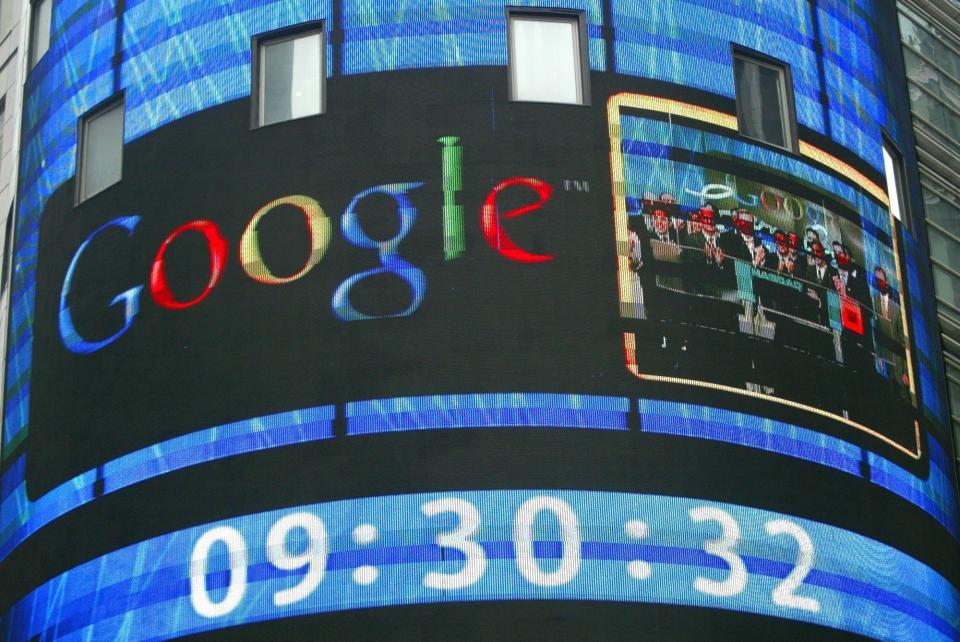Why the reopened government might not end the IPO drought
Open the floodgates!
Or maybe not.
Though less visible than TSA employees calling in sick, the IPO business was another casualty of the government shutdown that has ended… for now.
Companies need the Securities and Exchange Commission to sign off on their financials before they can sell stock to the public, but that process ground to a halt during the shutdown.
The problem now is that though the government has reopened, it is only guaranteed to be running until February 15. If Congress and President Trump don’t reach a border security agreement before then, the government may be shuttered again. That uncertainty will likely prevent the IPO business from kicking into gear because the filing process takes months, not days to work through.
Still, John Tuttle, COO of the NYSE is optimistic there will be some movement during the three-week window especially for those companies that were poised to go public.
“With the government reopened, we can expect several companies to launch their roadshow and complete an initial public offering,” Tuttle predicted. “That said, the second half of February is usually a slower period for IPOs due to third-quarter financial statements going stale. We are hopeful policymakers will agree to keep the federal government open and allow companies to access our public markets to raise capital and ultimately fuel economic growth.”
The delay and uncertainty inflicts pain on companies looking to go public—including biggies like Uber, Lyft, Airbnb, Pinterest, Slack and Palantir—as well as the investment banks that garner million-dollar fees from IPOs, never mind investors who’d love to get their hands on shares of these companies. It also means zero supply of stock offerings for the nation’s largest stock exchanges, which fight fiercely for IPOs
In fact, the battle between the NASDAQ (NDAQ) and the New York Stock Exchange (ICE) to take companies public is one the true dogfights of American business. Google v. Apple and Coke v. Pepsi, got nothing on the rivalry between the nation’s two biggest exchanges as they vie for bragging rights, fees, trading volume and myriad other benefits that accrue from a longstanding relationship with a high-profile company.

Just to give you an idea, adorning the halls of the NASDAQ Market Site in Times Square are large color photos of the likes of Larry Page, Howard Schultz and Bill Gates, ebullient and memorialized at the moment of their companies’ stock offerings.
The IPO business is cyclical of course and so you won’t be surprised to know that things have been humming right along for the past decade. Just to give you an idea, in 2008 only 31 companies filed to go public in the US (I’m surprised it was that many.) Since then it’s been up and upper. Last year 190 companies filed to go public including—including Dropbox ($756 million raised on NASDAQ) and Spotify ($9.2 billion on NYSE).
(Some additional quick IPO facts: 1999 was a peak year for IPOs with 486. The biggest US IPO of all-time was Alibaba (NYSE) in 2014, which raised $21.8 billion.)
Heading into the fourth quarter of last year, it looked like 2019 was going to be bang-up year.
“[We] had 22% higher number of IPO applications at the end of [2018] as we had at the end of [2017]. So, there is a lot of demand for companies wanting to tap the public markets," Nasdaq CEO Adena Friedman said during a panel that I moderated on ‘Automated Markets’ at the World Economic Forum in Davos, Switzerland. Then came the volatility in the fourth quarter which spooked the IPO business causing some companies to put off their offerings until 2019.
Next came the shutdown, which caused the entire business to grind to a halt. And it could cause a longer delay than you might think. "When you can't actually bring any IPOs to market in the month of January then you're starting to squeeze essentially the pipeline into a shorter time horizon,” Friedman said.
“Where it’s particularly challenging is a lot of companies based on their fiscal year end their numbers in those documents [which] go stale in mid-February,” said Tuttle. “So that will push them even later in the cycle.”
While the seized-up IPO business might not affect Americans the way airport delays do, it’s certainly a bummer for those companies, Wall Street, the exchanges and investors too.
How any of this is connected to building a wall on the Mexican border is a very good question.
—
Andy Serwer is editor-in-chief of Yahoo Finance. Follow him on Twitter @serwer.
Why Southwest Airlines founder Herb Kelleher was one of the greatest CEOs ever
Former President George H.W. Bush's tortured relationship with economics
Follow Yahoo Finance on Twitter, Facebook, Instagram, Flipboard, LinkedIn, YouTube, and reddit.
